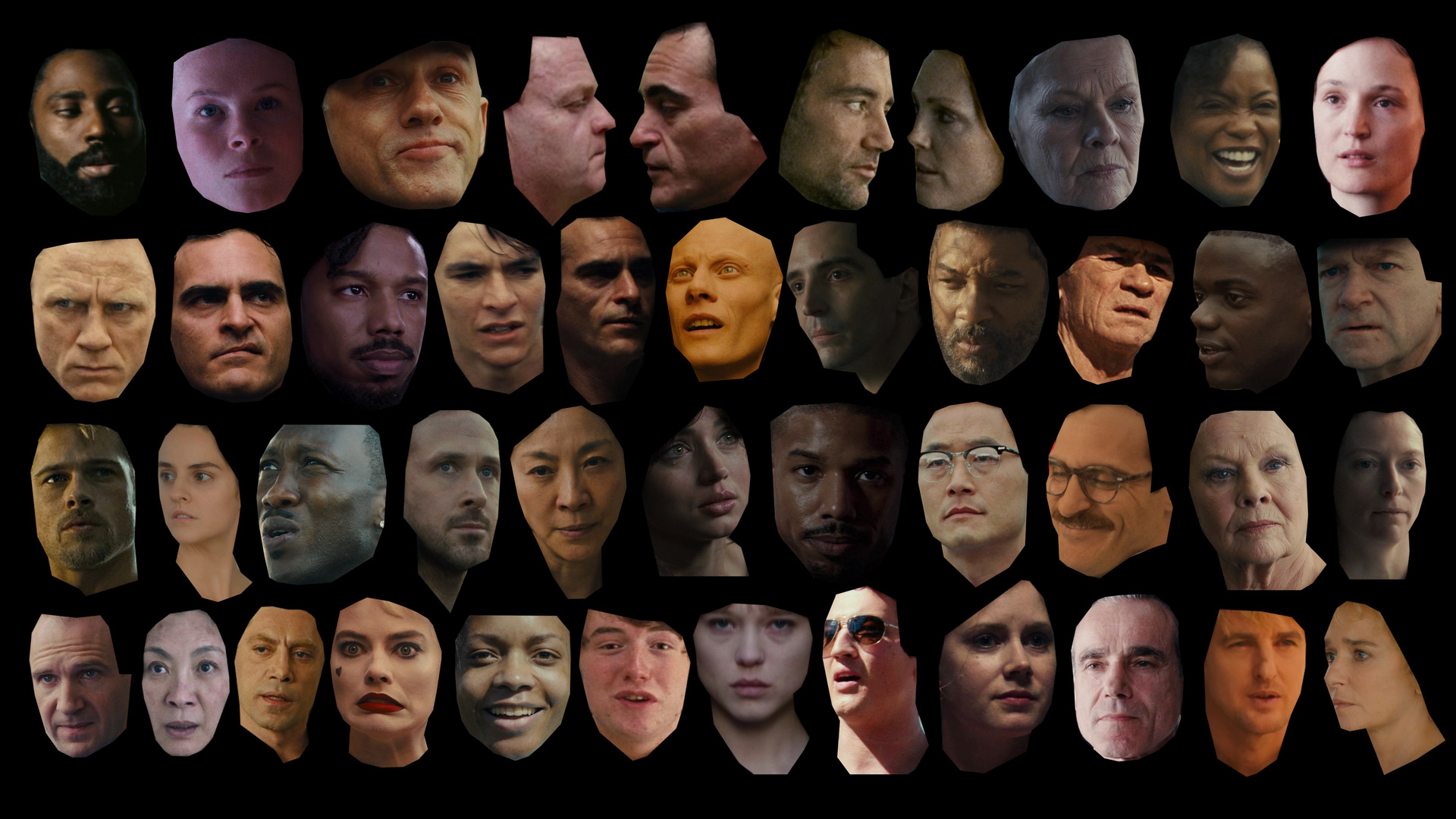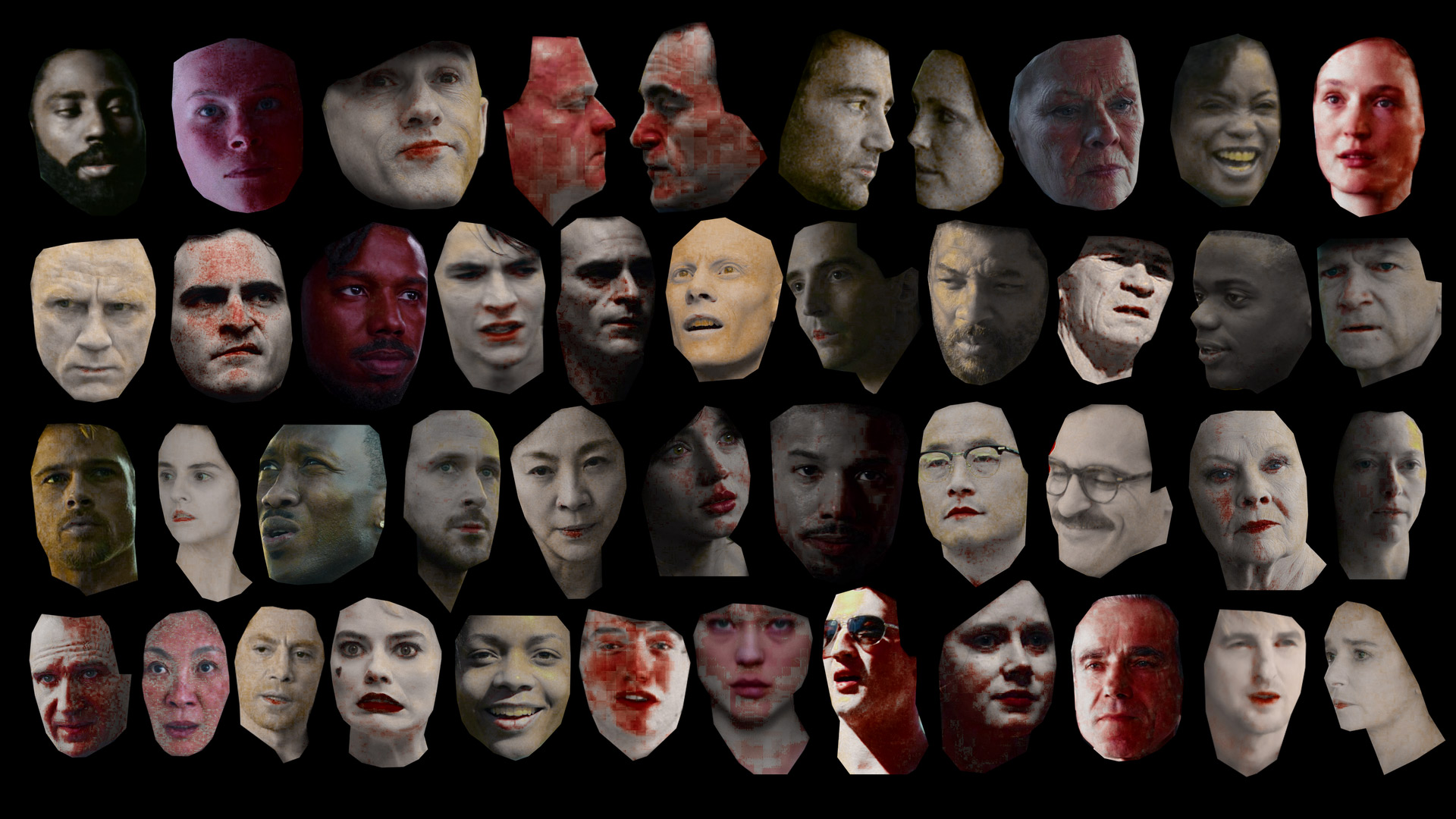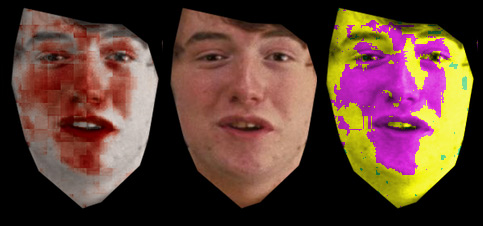A STUDY ON
SKIN TONE
INTRODUCTION
Accurately grading skin tone is one of the most critical and challenging aspects of color work. In this post, I take a close look at DaVinci Resolve’s ColorSlice tool, focusing on its dedicated skin tone slider. At first glance, the idea of a targeted control for skin sounds promising. But in practice, the results raise some deeper concerns.
Human skin spans a wide range of hues, influenced by lighting, environment, and individual variation. Yet the ColorSlice skin slider targets only a narrow slice of the hue spectrum. This can result in patchy adjustments, unnatural transitions, and tonal inconsistencies.
In the video linked below, I demonstrate these issues using film stills and vectorscope overlays. I show how skin tones rarely conform to a single line or fixed hue—and why more flexible grading tools, like broad vector controls or DCTLs, often provide better results.
I believe a broader approach to skin tone adjustment is more effective. Skin doesn’t always fall on the skin tone line. It shifts with lighting, mood, and the overall look of a film. Often, key aspects of skin tone sit closer to the red or yellow vectors. For that reason, I decided not to include a dedicated skin tone slider in my Color Shift DCTL pack. When developing a global look, fewer controls allow for faster and more natural results.


This image is a stress test of the ColorSlice tool in DaVinci Resolve, where I deliberately pushed its controls to the extreme to expose the limitations of its skin tone slider. The skin tone value is reduced to zero, completely desaturating its targeted range, while the red and yellow sliders are pushed to their maximum.
This image was created using balance.dctl, a false color tool from my Utility DCTL pack. It visualizes hue distribution in skin areas by mapping them to specific false colors: hues that align closely with the traditional “skin tone line” appear yellow, while those shifting toward green show as green, and hues leaning magenta appear magenta. What the image reveals is that skin tones in film don’t sit neatly on a single hue line. Instead, they span a wide and complex range, influenced by lighting, grading, and scene context.
CREDITS:
A Serious Man (2009) / Directed by Joel & Ethan Coen / © Focus Features
Birds of Prey (2020) / Directed by Cathy Yan / © Warner Bros. Pictures
Black Panther (2018) / Directed by Ryan Coogler / © Marvel Studios / Walt Disney Studios Motion Pictures
Blade Runner 2049 (2017) / Directed by Denis Villeneuve / © Warner Bros. Pictures
Children of Men (2006) / Directed by Alfonso Cuarón / © Universal Pictures
Drive (2011) / Directed by Nicolas Winding Refn / © FilmDistrict
Dunkirk (2017) / Directed by Christopher Nolan / © Warner Bros. Pictures
Everything Everywhere All at Once (2022) / Directed by Daniel Kwan & Daniel Scheinert / © A24
Get Out (2017) / Directed by Jordan Peele / © Universal Pictures
Green Book (2018) / Directed by Peter Farrelly / © Universal Pictures
Her (2013) / Directed by Spike Jonze / © Warner Bros. Pictures
Inglourious Basterds (2009) / Directed by Quentin Tarantino / © Universal Pictures / The Weinstein Company
King Richard (2021) / Directed by Reinaldo Marcus Green / © Warner Bros. Pictures
Licorice Pizza (2021) / Directed by Paul Thomas Anderson / © United Artists Releasing / MGM
Michael Clayton (2007) / Directed by Tony Gilroy / © Warner Bros. Pictures
Midnight in Paris (2011) / Directed by Woody Allen / © Sony Pictures Classics
Mission: Impossible – Ghost Protocol (2011) / Directed by Brad Bird / © Paramount Pictures
Moonlight (2016) / Directed by Barry Jenkins / © A24
No Country for Old Men (2007) / Directed by Joel & Ethan Coen / © Miramax / Paramount Vantage
Phantom Thread (2017) / Directed by Paul Thomas Anderson / © Focus Features
Portrait of a Lady on Fire (2019) / Directed by Céline Sciamma / © Pyramide Films
Seven (1995) / Directed by David Fincher / © New Line Cinema
Shame (2011) / Directed by Steve McQueen / © Momentum Pictures / Fox Searchlight Pictures
Sicario (2015) / Directed by Denis Villeneuve / © Lionsgate
Skyfall (2012) / Directed by Sam Mendes / © Sony Pictures Releasing / MGM / Columbia Pictures
Tenet (2020) / Directed by Christopher Nolan / © Warner Bros. Pictures
The Master (2012) / Directed by Paul Thomas Anderson / © The Weinstein Company
The Virgin Suicides (1999) / Directed by Sofia Coppola / © Paramount Classics




